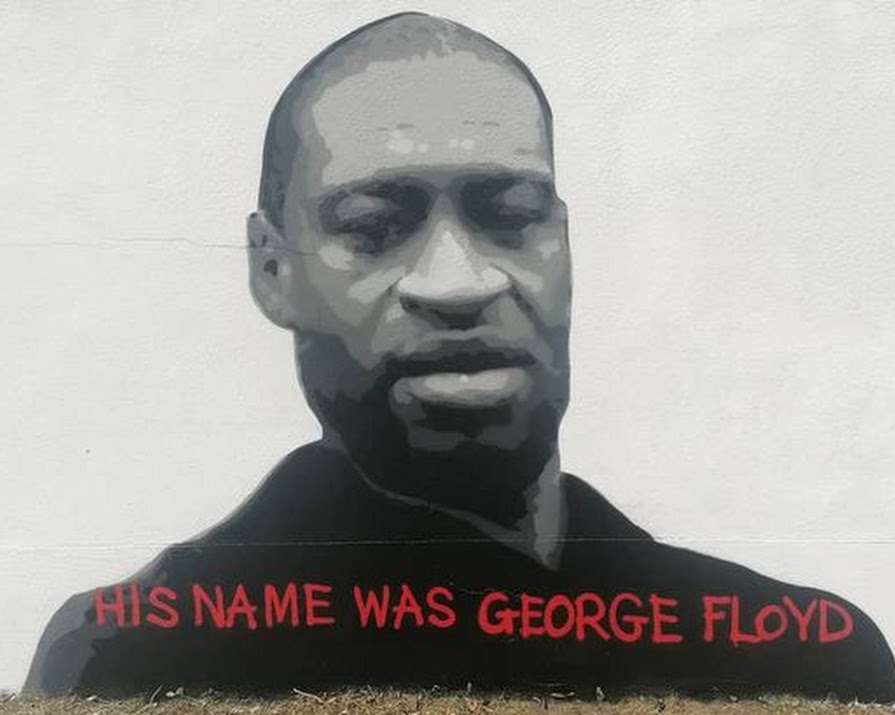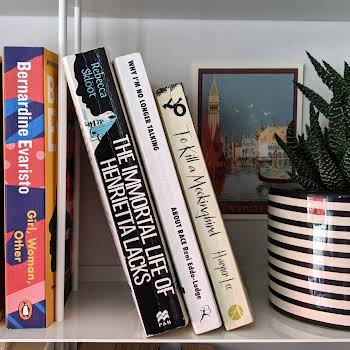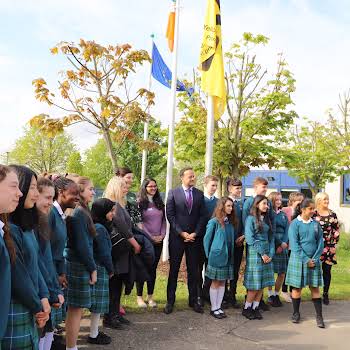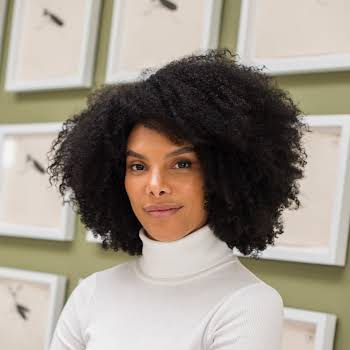By Shayna Sappington
02nd Jun 2020
02nd Jun 2020
On Blackout Tuesday, the world stands in solidarity to commemorate George Floyd and stop racially motivated police brutality. Here are 12 anti-racism books to educate yourself more about ongoing, systemic racism and how we can make a change.
In the wake of the murders of George Floyd and Ahmaud Arbery, protests have erupted like wildfire across the world.
Police brutality, systemic racism and prejudice are immediate problems facing not just America, but countries everywhere. Many have continued to march in protest and show solidarity with those who have fallen victim to hate crimes.
Blackout Tuesday
Just yesterday, Dubliners held a protest in support of George Floyd and today, many are participating in ‘Blackout Tuesday’ – #TheShowMustBePaused initiative created by two black women Jamila Thomas and Brianna Agyemang dedicated to disrupting the music industry for a day in observance of the long-standing racism and inequality that exists.
now, #TheShowMustBePaused innitiative started by two black women Jamila Thomas & Brianna Agyemang dedicated to disrupting the music industry for a day… love that.
seen less of that tag and proper info on that…industry folks need to specifically boost the ORIGINAL info
— Kehlani (@Kehlani) June 2, 2020
Intended to disrupt the workweek, many are pausing business as usual to share black images on social media to support the movement.
Floyd’s murder has also sparked a much-needed call for anti-racism education. Amazon’s current top two best sellers are White Fragility: Why It’s So Hard for White People to Talk About Racism by Robin DiAngelo and How to Be an Antiracist by Ibram X. Kendi.
The following books, alongside Netflix documentaries like 13th, When They See Us and the Oscar-nominated I’m Not Your Negro, are a great place to start for those who want to dive deeper into racism, how it started, how its perpetuating (especially in America) and how to do your part to help combat it.
Books on anti racism

National Book Award-winner Ibram X. Kendi gives readers an approach to understanding and uprooting racism and inequality in our society — and in ourselves. It doubles as both a memoir of the author’s own experience with racism and a guide highlighting racial inequality’s prevalence and what we should do about it.
A national bestseller when it was first published in 1963, this book tells the story of James Baldwin as an African American living in Harlem during the Civil Rights movement. Composed of two personal letters, it is an immediate and searing commentary on the legacy of racism.
A great follow up would be the 2016 The Fire This Time: A New Generation Speaks about Race, edited by Jesmyn Ward. It’s a groundbreaking collection of essays and poems about race that reflects on Baldwin’s classic and gives a voice to some of the most important voices of our time.
Author Ta-Nehisi Coates attempts to answer questions about racism in America in the form of a letter to his 14-year-old son. A masterful, lyrical personal narrative, Coates recalls his experience with nationalist mythology as a child; travels to Civil War battlefields and the South Side of Chicago and pilgrimages to the homes of mothers who have lost children to the race war.

Claudia Rankine’s fiercely moving and critical prose poems shed light on racism in Western society by telling of the unjust experiences of prominent black figures like Serena Williams and the late Mark Duggan. Discrimination, prejudice, and longer meditations on violence are described through moving essays, images and poetry.
This multiple award-winning novel is a recommended guidebook for anyone who wants to understand race relations in Britain today. Journalist Reni Eddo-Lodge writes about her frustration with the way that discussions of race and racism are being led by those who aren’t affected by it, looking at eradicated black history, the link between class and race, the political purpose of white dominance and whitewashed feminism.
Robin DiAngelo coined the term ‘white fragility’ to describe the sensitivity some have when it is pointed out to them that they have done or said something that has — unintentionally — caused racial offence or hurt. As a professor of Whiteness Studies, she shows us how we can start having more honest conversations, listen to each other better and react to feedback with grace and humility.
Recent polls show that only 31 percent of white people in the United States believe racism is a major societal problem; at the same time, resistance is strong, as highlighted by indigenous struggles for land and sovereignty and the Movement for Black Lives. Social justice activist Paul Kivel provides practical tools and advice on how white people can work as allies for racial justice.

The mass incarceration of a disproportionate number of black men has led to a devastating system of racial control. Despite the triumphant dismantling of the Jim Crow laws, former litigator-turned-legal-scholar Michelle Alexander provocatively argues that we have not ended racial caste in America: we have simply redesigned it.
From the Civil War to our combustible present, historian Carol Anderson illuminates when social progress for African Americans was halted again and again. She exposes long covered actions made in the name of protecting democracy, fiscal responsibility, or protection against fraud, rendering visible the long lineage of white rage and reframing our conversation about race.
Straightforward, funny and impactful, Ijeoma Oluo answers tough questions about race complexities and explains the concepts that continue to elude everyday Americans. She addresses issues head on, discussing privilege, police brutality, intersectionality, micro-aggressions, the Black Lives Matter movement, and the “N” word.
In this powerful and provocative memoir, Kiese Laymon shares his experiences with abuse, which conjure conflicted feelings of shame, joy, confusion and humiliation. He explores the contradicting complexities of growing up in a nation focused on progress yet disinterested in progressing race equality. His story illuminates national failures in a defiant, vulnerable and sometimes comical way, exploring weight, identity, art, friendship, and family in a racially-charged society.

Washington Post writer Wesley Lowery travelled to Ferguson, Missouri, Cleveland, Ohio, Charleston, South Carolina, and Baltimore, Maryland, to conduct hundreds of interviews with local activists and the families of Michael Brown, Tamir Rice, and Freddie Gray — black boys unjustly murdered by police officers. Marked with moments of joy and tragedy, Lowery looks at racially-biased policing in segregated neighborhoods with failing schools, crumbling infrastructure and high unemployment rates.
Read more: My Dark Vanessa: ‘So many people tell her what to do it ends up silencing her’
Read more: How coronavirus, Amy Cooper and the murder of George Floyd have converged to create a firestorm of protest in the US
Read more: Join Sinead Gleeson, Liz Nugent, Patrick Freyne and Naoise Dolan for an exclusive Literature in Lockdown virtual event























